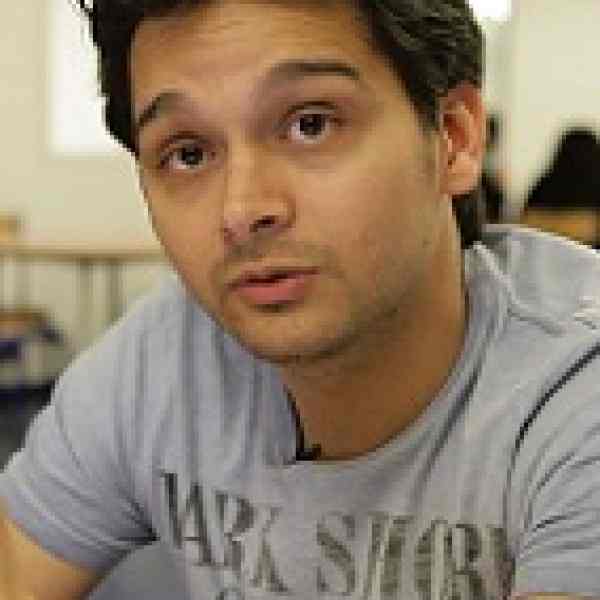Through a nominator network composed of major citizen and public organizations on asylum, Nathanaël identifies refugees with entrepreneurial skills and supports them in the creation of small enterprises. He then sets up large-scale communication strategies around these entrepreneurs to make them become ambassadors of the refugees’ community showcasing its economic, social and cultural value among society. Nathanaël has implemented a thorough support process for this group of ambassadors to reveal and reinforce their entrepreneurial skills and create projects focused on their talents and passions. His entrepreneurial program includes language courses, cultural training, and understanding of the local market, as well as support for business plan creation and fundraising and administrative assistance.
To represent the diverse reality of refugees, Nathanaël supports emblematic role models who come from very different backgrounds and tells their stories through their projects. For example, four women from four different countries have together set up a world cuisine restaurant. Another has created the first Kurdish dance school in Paris.
Beyond the entrepreneurial successes, Singa sets up communication strategies to “tell another story” about the refugees. The project and the refugees gain visibility mainly through web and media. Each entrepreneur benefits from a blog managed by Singa community managers. In addition, by being very active on social networks, Singa has mobilized a web-community of 70,000 people in only a year.
Singa’s entrepreneurs also have a direct and positive impact on the refugees themselves who lack role models for integration. Rebuilding their confidence and trust, Singa supports those who are not entrepreneurial as well. Nathanaël has structured a one-to-one offer for professional language courses to enable each refugee to focus on the vocabulary needed to quickly enhance value on the French market in order to work in the same professional field as he did in his origin country. For example, an expert accountant from Sierra Leone managed to learn the specific vocabulary and differences in accounting French systems and was successfully trained for interviews, thus getting an apprenticeship in a company in Singa’s network.
Nathanaël has based Singa’s success on the creation of a large community of volunteers. Breaking isolation, speaking the language, building friendships, understanding the cultural codes are fundamental key factors of integration that have been neglected so far by the actors involved in the question of asylum. Convinced by the importance of committing the entire civil society to the integration of refugees, Nathanaël has implemented a system to create interpersonal links between refugees and French citizens at a large scale. By starting to change society’s perceptions on refugees, he turns them into attractive stakeholders - people that everyone wants to help. Refugees aren’t stigmatized anymore, but are instead seen as inspiring, passionate people.
Thanks to the program Singa Languages, Nathanaël makes the commitment of volunteers very simple, and ensures that they are trained on the specific issue of asylum. By implementing a tutoring system, Nathanaël uses French language instruction as a means for establishing a recurring and long-term interpersonal tutor-refugee relation. As of today, 7,000 hours of tutoring have been conducted. Very often, the relationship created goes further and enables the refugee to create a network through his tutor. Today, the mobilization of volunteers is a key asset for Singa, and contributes very strongly to its actions. In this way, Singa’s 2013 cash budget is €130,000 without accounting for volunteer work, but climbs to €1.5 million with volunteer hours accounted for.
Nathanaël also changes perception through collaborative events -“Singa Discoveries” and “Singa Nights” - that enable meetings between refugees and citizens around a topic of common interest. Aware of the fundamental role of local relations, Singa scales through the opening of regional offices. After beginning in the region of Paris (which includes 10 million inhabitants), he chose to expand Singa to Lyon, France’s second largest city, in 2014. Since the beginning, Nathanaël has developed strong partnerships with asylum charities to work with them on the “post-approval phase,” i.e. integration.
Singa assumes the role of innovation lab for public institutions, primarily the Department of Homeland Security. Nathanaël has integrated working groups on asylum seekers and refugees, and is leading two main proposals. The first is a European study about the use of NICTs as a vector of refugee integration, developed by 18 high-level researchers recruited through social networks! The first output of this study is the need to create a common database system to improve the follow-up of each refugee and to coordinate the different stakeholders’ efforts (three different systems currently in place).
The second is advocacy for a new housing solution inspired by an Australian model to offer accommodation to refugees in citizens’ homes – a low-cost solution that would have significant impact on the relationships between the French people and the country’s refugees. Beyond his lobbying approach to this question, Nathanaël has already been leading - in partnership with two major traditional players of the refugee issue in France - the implementation of a concrete tool: a community-based website to connect citizens who agree to accommodate refugees with refugees looking for a home, which will go live in 2015.
The stigmatization of refugees is an issue that crosses French borders and Singa is gaining increased recognition abroad. The model can be replicated elsewhere and Nathanaël has already implemented an international charter for Singa, with a replication kit. In Australia and Morocco, project managers have already been identified and development is under way.
Read less



